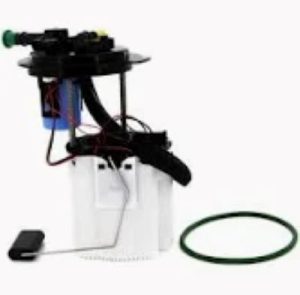Fuel pumps are an integral element in fuel-efficient cars because they closely control the amount of fuel that reaches the engine(JSONObject), helping keep gas mileage at optimal levels. The process begins with a properly operating fuel pump, feeding your engine the right amount of fuel to deliver the optimal air-fuel ratio for MPG. Modern vehicles have fuel pumps that keep the pressure consistently usually at 40-70 psi depending on the engine requirements. A failing pump can produce erratic fuel pressure ratios, causing rich or lean mixtures which can reduce fuel mileage by as much as 15%
For vehicles with an electronic fuel injection system, the fuel pump's performance also has an impact on how well its injectors can compensate the combustion chamber which uses them to supply fuel. This can lead to fuel wastage and enhanced emissions as incomplete combustion could be observed via pumps that perform poorly. Motor industry reports suggest that fuel systems that are not working correctly can make fuel usage and cost fall by up to 20%, which has obvious implications with regards to the overall price of driving.
Automotive Brands Produced High-Performance Fuel Pump: While it is true that high-performance fuel pumps, such as many Kemso fuel pumps, are designed to support these higher demand engines when they need to use more fuel, but the also operate efficiently at regular driving levels. The pumps are capable of high fuel flow rates and pressure stability at anything greater than 300-horsepower. Without this type of consistency, the fuel tank may suffocate itself during acceleration or high-speed driving which has a less-than-desirable effect on fuel efficiency.

Over time, fuel filters could become plugged if the fuel pumps are not properly maintained which may result in diminishing return for your pump. This can cause the pump to work harder, increasing fuel consumption and further lowering mileage. Automotive experts are quick to point out that fuel economy can be boosted by up to 10 percent in some applications simply by changing a clogged filter. They suffer from degradation over time, and the fuel pump is generally replaced every 100,000 or so miles in normal maintenance to keep the system working well for improved function and better fuel economy.
One common question is, How Does a Bad Fuel Pump Affect Gas Mileage? More on this later, but the hint is that lower pressure causes an increase in fuel delivery by the engine control unit (ECU) to match desired output—leading to more fuel consumption. Conversely, an over-performing pump can overtake the system and also lead to a decline in fuel economy. Balanced and efficient, fuel pumps matching your engine requirements such as those of Kemso are just right.
Click here to learn more about fuel pumps, how they influence fuel efficiency and performance through numerous functions at Fuel Pump.
